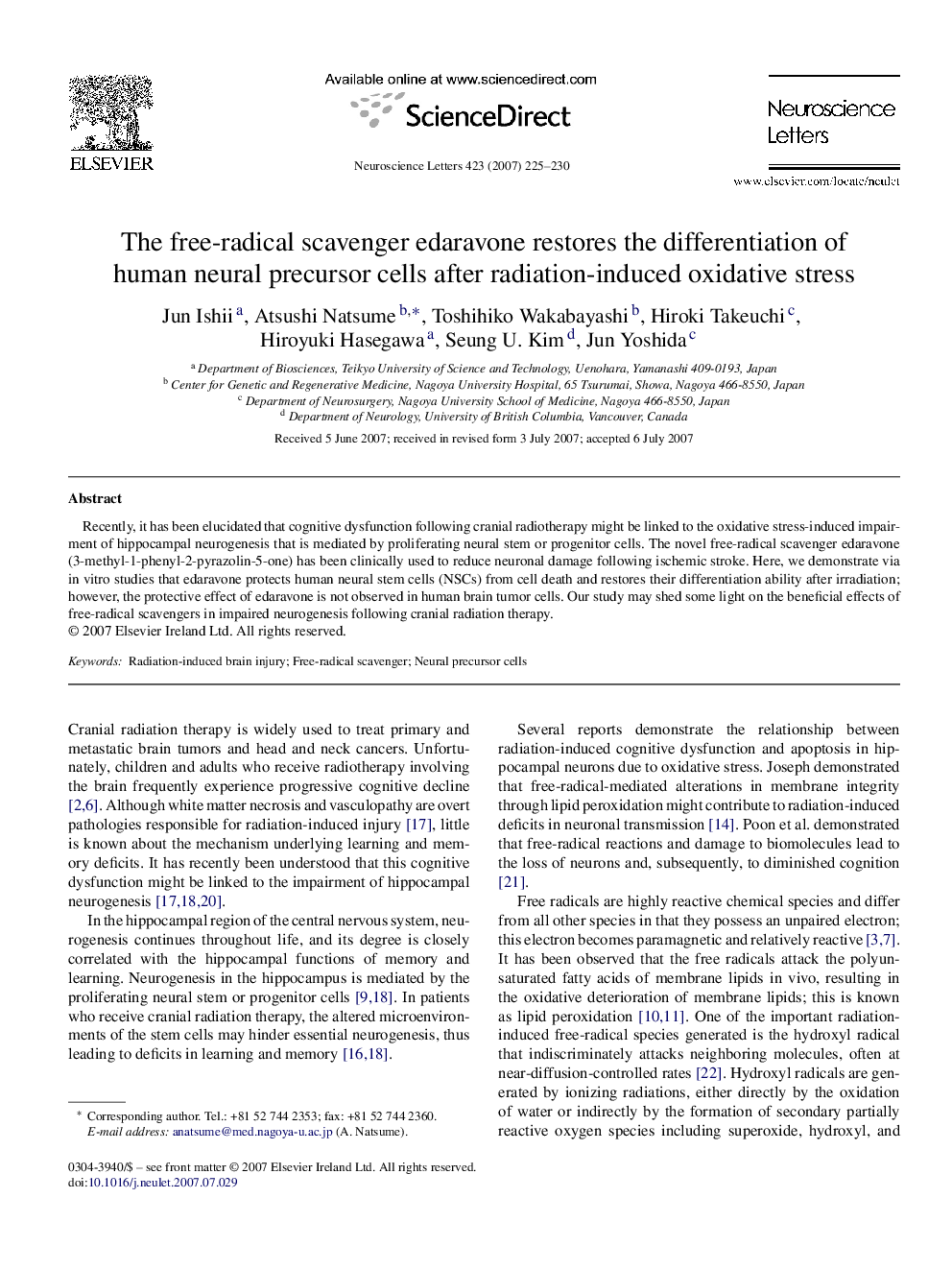| Article ID | Journal | Published Year | Pages | File Type |
|---|---|---|---|---|
| 4349313 | Neuroscience Letters | 2007 | 6 Pages |
Recently, it has been elucidated that cognitive dysfunction following cranial radiotherapy might be linked to the oxidative stress-induced impairment of hippocampal neurogenesis that is mediated by proliferating neural stem or progenitor cells. The novel free-radical scavenger edaravone (3-methyl-1-phenyl-2-pyrazolin-5-one) has been clinically used to reduce neuronal damage following ischemic stroke. Here, we demonstrate via in vitro studies that edaravone protects human neural stem cells (NSCs) from cell death and restores their differentiation ability after irradiation; however, the protective effect of edaravone is not observed in human brain tumor cells. Our study may shed some light on the beneficial effects of free-radical scavengers in impaired neurogenesis following cranial radiation therapy.
